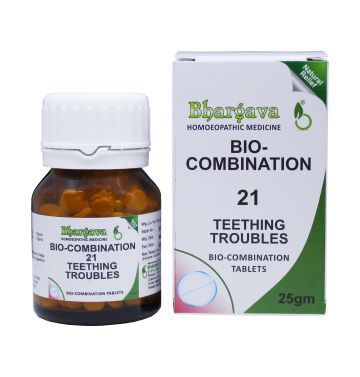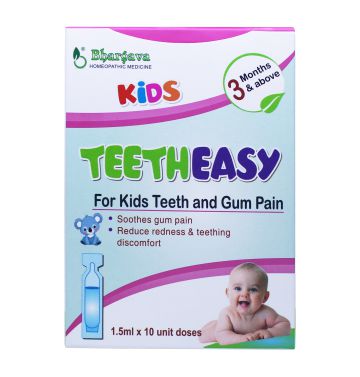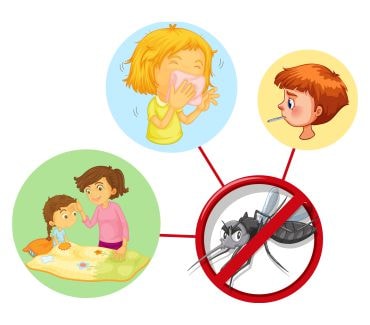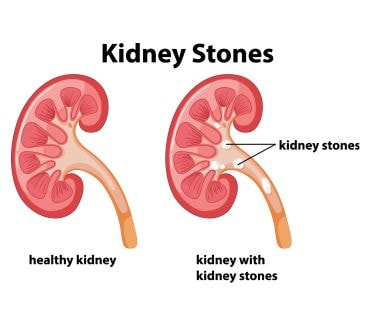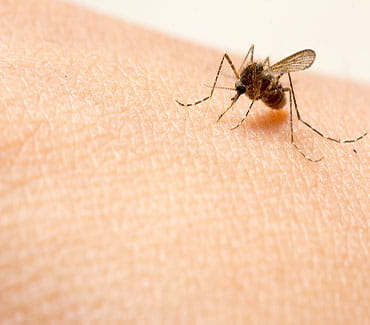Teething: What Is It?
When a baby starts teething, the first teeth will erupt from the gums. Both parents and newborns may experience frustration during this period. It might be easier if you know what to anticipate from teething and how to make it a bit less uncomfortable. Later in this article, we’ll understand more about teething troubles homeopathic medicines, and the treatments available.
When Do Infants Start Teething?
The final set of molars typically erupts between the ages of 30-36 months, while teething typically begins at four to eight months old with the lower front teeth. The symptoms of teething include irritability, disturbed sleep, swollen or inflamed gums, drooling, appetite loss, rash around the mouth, slight fever, diarrhoea, increased biting and gum-rubbing, and even rubbing of the ears. According to a British Dental Journal publication, 70–80 percent of parents experienced these symptoms. Then why don’t all babies have teething symptoms? Find out by reading on.
What Are the Signs of Teething?
Children who are teething may drool more and desire to gnaw on objects. Some infants’ teething discomfort is bearable. Some people may look grumpy for weeks, while others may only be irritable for short times, with crying fits and irregular eating and sleeping schedules. However, consult your doctor if your infant seems excessively irritable. Teething may be unpleasant.
Teething often doesn’t result in high fever or diarrhoea; however, your baby’s temperature may be higher than usual due to sore and swollen gums. If your infant does get a fever during teething, it is likely due to something else; therefore, you should see a doctor.
What can I do at home before going for homeopathic medicine for teething troubles?
Although children are often not very uncomfortable when teething, many parents can tell when their infant is going through it. Babies may drool more than normal, exhibit pain in the region where the tooth erupts, and have swollen or irritated gums surrounding the tooth.
By rubbing their baby’s gums with clean hands, supplying solid teething rings that aren’t liquid-filled, or giving them a clean, cold or wet washcloth, parents may aid their children who are teething. If you give your infant a teething biscuit, keep an eye on him or her while eating. Chunks may easily break off and cause choking. These biscuits are also not very nutritional, most of which include salt and sugar.
Teething Troubles Homeopathy Treatment
Kids Teeth Easy Drops
This drop works well for inflammation, mild fever, frequent or loose stools, gum pain and redness, and teething discomfort. Infants between the ages of 6 and 7 months often experience it. Kids Teeth Easy Drops are efficient, quick, and safe. There are no documented adverse effects or interactions with other medications. They also have no contraindications and don’t build habits. This homeopathic medicine for teething troubles should be given two to three drops daily. It also works as the best homeopathic medicine for loose motion in kids.
Bio-Combination no 21
It aids in getting beyond teething issues. It is beneficial when there is an irritated, tardy, and difficult dentition. The processes used to create Doctor Bhargava BC 21 homeopathic medicine for teething have been refined over a century of use.
After the symptoms have subsided, it is advisable to continue taking homeopathic medicine for teething infants at a lower dosage. Generally speaking, you should continue taking this medication after your symptoms have subsided the longer you have the issue. This will increase the likelihood of a fuller recovery. The continual dose may range from twice daily to twice weekly for a week to perhaps many months, depending on how long the condition has persisted and how severe it is.


















